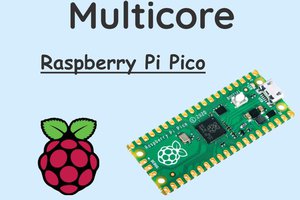This project serves as the introduction to a series of projects that use Raspberry Pi, Arduino, Snap Circuits, and various other science toys that educators can use to teach STEAM (Science, Technology, Engineering, Art, and Math). This introductory project is actually very simple: I demonstrate how to program an Arduino with a Raspberry Pi.

March for Science Indianapolis
We are starting to see an alarming decline of science literacy in the United States. The US continues to be the most scientifically and technologically advanced nation on earth and continues to lead the world in science and technology output. But as Niall Ferguson, the Laurence A. Tisch Professor of History at Harvard University, observes:
“It’s certainly true that U.S.-based scientists continue to walk off with plenty of Nobel Prizes each year. But Nobel winners are old men. The future belongs not to them but to today’s teenagers....Every three years the Organization of Economic Cooperation and Development’s Program for International Student Assessment tests the educational attainment of 15-year-olds around the world. The latest data on “mathematical literacy” reveal that the gap between the world leaders—the students of Shanghai and Singapore—and their American counterparts is now as big as the gap between U.S. kids and teenagers in Albania and Tunisia." Source
China is catching up to the United States according to the National Science Foundation. Nonetheless, though we have a number of serious issues we must confront such as global warming, we do have immediately pressing issues such as confronting anti-science movements like anti-vaccine, anti-GMO, and chemophobia (think Vani Hari a.k.a. “The Food Babe”).
Despite anti-science advocacy organizations and the "reproducibility problem," science still works:
There is a growing citizen scientist (amateur scientist) movement spawned from the maker movement that is similar to the Gentleman and Lady scientists that preceded the Age of Enlightenment and before the professionalization of science. Citizen scientists are doing research that often rivals professional scientists and publishing their research in open journals and occasionally in prestigious scientific journals. Of course, most modern citizen scientists usually aren't wealthy like the early Lady and Gentleman scientists but nonetheless conduct their experiments with what ever they can scrounge together.
I think the Maker/DIY/hardware hacking communities inherently understand that a gizmo may look good on paper, but once you start building it, it may not turn out the way you planned. There’s a lot of troubleshooting between idea and prototype trying to figure out what went wrong during the build. You learn a lot from failure. Probably...
Read more » Steve Schuler
Steve Schuler


 Simon
Simon
 IWILZ
IWILZ
 Bikash Narayan Panda
Bikash Narayan Panda
There has been a great deal of value to me in my involvement with the project. Would like to share it with the how to control dreams team so they can also read it and implement something new.